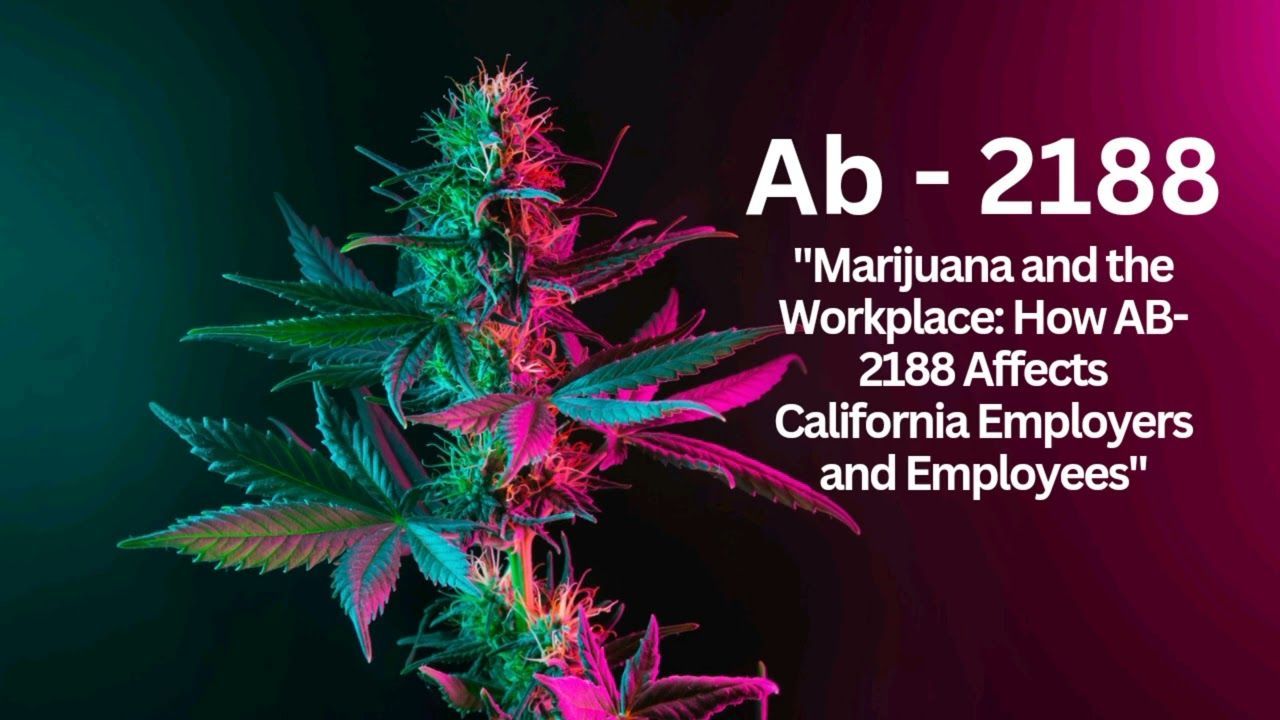Navigating the Haze: Unraveling AB 2188 & The Future of Drug Testing in California
For HR Professionals, Security, and Risk Managers: The Definitive Guide to Cannabis Legislation and Employee Drug Screening
California’s progressive stance in cannabis legislation has brought us to the crossroads of AB 2188—a landmark act poised to reshape employer approaches to cannabis-related decisions that marks a significant leap toward safeguarding employee rights. At Contraband Control Specialists, we are at the forefront, navigating the complexities of cannabis testing science and legal nuances to bring clarity to employers in Bakersfield, Kern County, and throughout the entire Central Valley.
AB 2188: Breaking Down The Green Barrier
Assembly Bill 2188, signed into law by Governor Newsom on September 18, 2022, stands as a pivotal moment in employment law and drug testing. It reflects a profound shift in our understanding and approach towards cannabis consumption, particularly in the workplace. The bill specifically prohibits employers from discriminating against individuals based on their off-the-job cannabis use, with some exceptions, marking the first time that California’s permissive cannabis-use laws have been integrated into the employment realm.
Historical Backtrack: A Journey of Legislation
AB 2188 is not just a piece of legislation; it's a pivotal moment in employment law and drug testing. Tracing back California’s cannabis journey, we observe a narrative of evolving perspectives and societal shifts. The Golden State has been a pioneer, from the compassionate use act of 1996 to the legalization of recreational use in 2016. These legislative milestones shaped employer-employee dynamics, necessitating adaptations in drug testing policies.
The societal shift towards cannabis acceptance influenced this change, reflecting changing attitudes and recognizing the need for fair and equitable employment practices. The journey, while progressive, also highlights the ongoing challenges in aligning individual freedoms with workplace requirements.
Specific Provisions of AB 2188:
Rooted in California's cannabis-related legislative track record, Assembly Bill 2188 adds a layer of protection for employees who consume cannabis outside the workplace. Under the law, off-the-job cannabis use can't serve as grounds for employment discrimination. This significant change was motivated by the growing acknowledgment of cannabis consumption as a personal choice, analogous to alcohol consumption.
Comparative Legislation
Beginning January 1, 2024, the California Fair Employment and Housing Act (FEHA) is set to undergo significant amendments with the implementation of AB 2188. Comparatively, AB 2188 is more progressive than previous cannabis legislation in California and many other states. It refines the balance between employee rights and employer interests, addressing the evolving nature of cannabis use and its intersection with employment.
Motivation and Rationale
The rationale behind the bill stems from the shift in societal attitudes towards cannabis use and the recognition of its medicinal and recreational benefits. By establishing a protective boundary around off-the-job use, the bill aims to prevent undue prejudice against responsible cannabis consumers while maintaining workplace safety.
Legal Landscape: Federal and State Discrepancy
AB 2188 stands in stark contrast to the federal government’s classification of cannabis as a Schedule 1 drug, representing a substance with high abuse potential and no accepted medical use. Despite the conflict with federal law, California has pioneered cannabis legislation, from the Compassionate Use Act of 1996 to the Medicinal and Adult-Use Cannabis Regulation and Safety Act in 2016.
The Science Behind Cannabis Testing: THC vs THCA
Understanding the science of cannabis testing is pivotal. THC, the psychoactive component of cannabis, and THCA, its nonpsychoactive metabolite, have distinct biochemical properties. These differences play a crucial role in detection windows—THC is detected for a shorter period compared to THCA. However, neither test can definitively signal impairment, forming the crux of the challenges employers face. This scientific limitation underscores the need for nuanced and informed approaches to cannabis testing in the workplace, ensuring fairness and safety.
Distinction Between THC and Metabolites
AB 2188 emphasizes the differentiation between the psychoactive component, THC, and its nonpsychoactive metabolites. The conversion of THCA to THC through decarboxylation is fundamental to their differences, affecting how each compound interacts with the endocannabinoid system and how they are detected in drug tests. While THC is indicative of impairment, its metabolites only reveal cannabis consumption within the past few weeks, rendering traditional drug tests inefficient in assessing actual impairment. The legislation acknowledges the availability of alternative drug tests correlating more accurately with impairment, a pivotal consideration in the formulation of AB 2188.
Detection Windows and Limitations
THC’s shorter detection window contrasts with THCA’s lingering presence in the body. Current drug testing technologies primarily focus on detecting metabolites rather than assessing impairment, a limitation that challenges the efficacy of standard testing methodologies in determining recent cannabis use and legitimate impairment.

The Future of Drug Testing: Beyond the Urine Cup
Traditionally, urine testing has been the go-to, with its longer detection window. However, modern advancements provide new avenues:
Rapid Oral Fluid Testing
Enter rapid oral fluid testing—a technology that offers unique advantages. Unlike traditional urine testing, it detects THC, providing a more accurate reflection of recent use. It also boasts a shorter detection window, making it a valuable tool for immediate action. This real-time detection empowers employers to make same-day employment decisions, improving the candidate experience. However, like all technologies, it has its limitations. Understanding these, along with its applications, is crucial for employers. The technology is an indication of progress but requires informed application to truly benefit workplace safety and fairness.
Redefining Hiring: Same Day Results, Less Attrition
Gone are the days of protracted lab-based tests and waiting periods. Rapid testing heralds a new era where HR professionals can extend same-day job offers, ensuring a smoother, more efficient hiring process. It eliminates the frustrations of no-shows, prolonged wait times, and a tangled hiring process.
Exceptions, Implications, and Compliance
AB 2188, while protective, outlines several exceptions—employees in construction trades, those under federal investigations, or subjected to mandatory testing under state or federal laws. These exceptions add layers of complexity for employers navigating compliance.
Employers must be vigilant and proactive, adapting their testing policies, and seeking legal guidance. Real-life scenarios and case studies reveal the nuances of ensuring compliance while respecting employee rights, a balance that is pivotal in fostering a harmonious workplace.
Decrypting the Green Code: In-Depth Q&A on AB 2188
List of Services
-
Q: How does AB 2188 impact employers' approach to drug testing?List Item 1
A: AB 2188 necessitates a change in employer-required drug screening tests to focus on detecting actual impairment due to THC rather than the presence of nonpsychoactive cannabis metabolites. Employers need to adapt their policies and practices relating to drug screening in connection with hiring, discipline, and termination to ensure compliance with the new law.
-
Q: Are there any exceptions to AB 2188’s provisions?List Item 2
A: Yes, AB 2188 contains exceptions for certain industries, such as building and construction trades. It also recognizes conflicts with federal law and includes carve-outs for positions requiring a federal government background investigation, security clearance, or compliance with federal drug testing regulations.
-
Q: Does AB 2188 permit cannabis use or impairment in the workplace?List Item 3
A: No, AB 2188 does not permit employees to possess, be impaired by, or use cannabis on the job. Employers retain the right and obligation to maintain a drug and alcohol-free workplace.
-
Q: How does AB 2188 reconcile with federal law on cannabis?List Item 4
A: While cannabis remains a Schedule 1 drug under federal law, AB 2188 specifically addresses this discrepancy by including provisions for positions subject to federal regulations. It does not preempt federal laws requiring drug testing as a condition of employment or receiving federal benefits.
-
Q: What steps should employers take to comply with AB 2188?
A: Employers should review and update their hiring, discipline, and termination policies and identify compliant testing methods for pre-employment screenings. Consulting with labor and employment counsel is advisable to ensure readiness and compliance once the law takes effect.
-
Q: How does AB 2188 affect previous California Supreme Court rulings on cannabis use and employment?
A: AB 2188 addresses and rectifies the limitations of previous rulings, such as Ross v. Ragingwire Telecommunications, Inc., by explicitly protecting employees from discrimination based on off-the-job cannabis use and stipulating the requirements for lawful drug screening.
-
Q: What are the implications of AB 2188 for job applicants?
A: Job applicants are protected from discrimination based on off-the-job cannabis use. However, they must adhere to employers’ policies prohibiting on-the-job cannabis use and impairment.
-
Q: Are there scientifically valid drug screening methods that do not screen for nonpsychoactive cannabis metabolites?
A: Yes, the legislation recognizes that improved science has led to the development of alternative drug tests that better correlate with impairment and do not rely on the presence of nonpsychoactive cannabis metabolites to detect recently consumed THC.
Conclusion:
The enactment of AB 2188 represents a monumental shift in California's employment landscape, bridging the gap between cannabis legalization and workplace rights. Employers are tasked with navigating the nuanced provisions of the law, ensuring the adoption of compliant drug testing methods, and fostering a balanced approach to employee rights and workplace safety. Contraband Control Specialists remain a steadfast resource in this evolving landscape, guiding employers through the complexities of compliance and offering expert insights into the transformative effects of AB 2188.
Ready to lead the way in fostering a balanced and fair workplace? Arm yourself with knowledge and adapt your organization's strategies by diving deeper into AB 2188 with us. Reach out to our team for tailored advice, actionable insights, and cutting-edge solutions designed to guide you through the changes in cannabis testing science and legal nuances. Don’t let the haze of regulation cloud your judgment—take decisive action, ensure compliance, and champion employee rights today!
Substance Sense: The Kern County Workplace Safety Blog


